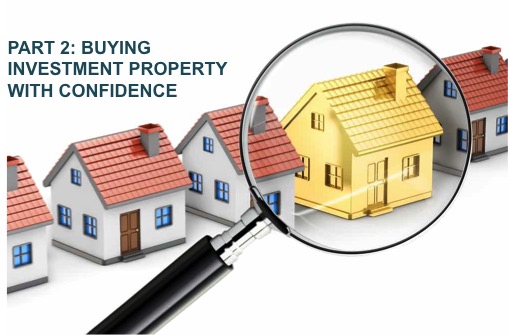In Part 1 of this blog series we shared how for a period of time we were a little stuck and didn’t buy anything for about 2 years. However we’ve transitioned into the kind of investors who can de-risk the deal and buy with confidence. We introduced the 3 key areas we cover off to help do this and in this post I’ll run through an overview of that first main area – The buying.
This phase is made up of several steps which we’ve distilled below. It’s by no means an exhaustive list but to serves as a reference point for getting closer to being that confident, de-risked investor.
Key areas to go through and put in place:
AREA & SOURCING
It might sound simple but the whole approach here is about thinking with end in mind and working back from those desired exits. Compare that with purely considering property that ‘looks cheap’ and you get a very different outcome. The first property I bought in 2007 was because it ‘looked cheap’. OK I had to cut my teeth on something but knowing what I know I wouldn’t buy it again.
Briefly on area – Chris and I both live about 45 mins from our nearest major city so have had the opportunity to consider the spectrum of city centre property right out to semi rural villages. The key things we have been looking for is to find the balance point between enough reduction in the price of bricks and mortar from city centre yet with enough surrounding demand and infrastructure to support a few exits. I’ll come back to exits in Part 4 but for us a major focus is serviced accommodation. We prefer outskirts and secondary towns to achieve this balance.
Briefly on sourcing – you could consider engaging sourcers, do the leaflet dropping thing and try to find the motivated sellers etc. The most straightforward, and the one that provides enough stock is of course open market property being sold by agents.
ANALYSIS AND VIEWINGS
Thinking with the end in mind you want to be asking yourself, is this to sell on straight away, to hold for cash flow and refinance, or maybe a hybrid to cash flow to recoup some costs for a period and then sell to release all your funds along with the upside of a light refurb?
We aim to minimise speculative viewing by having done all the desk analysis at home in advance. A simple spreadsheet with some formulas to work out rough total costs against various exits is all that it takes. Assessing as many reasonable comparables as you can is key to your understanding too ie previous sold prices in the area, what else is currently for sale, and getting that down to sales price per square metre where possible. Go to viewings prepped with your own checklist of what you’re looking for so you can then do a more accurate costing of refurb works. We have found viewings to be a great opportunity to build rapport with agents and to tap into their local knowledge of what is underpriced, what’s in demand, reasonable end sales values etc.
FINANCING AND BUYING ENTITY
This will clearly be based on personal circumstances but it’s fair to say that investors have multiple options to consider to purchase a property (particularly if it’s under £200K):
-100% your own cash
-enough of your cash to put down a deposit
-JV loan
-bridging (whilst convenient, very expensive)
-unsecured business loans
Due to harsh tax changes over recent years there will be fewer investors buying property in their personal name these days. Yes you will have capital gains allowance when you sell (the first one at least, there’s a bit more to it than that), however limited companies or LLP’s are becoming more the investor norm.
WHO – KEY PEOPLE IN YOUR POWER TEAM
Builder – this is huge in being able to buy with confidence when starting out. Being able to walk round a viewing with a trusted tradesperson is significant – find a friendly builder or even JV with one.
Solicitor – good to start a relationship with a property solicitor rather than a generalist because as you grow into more complex deals you will need that professional support – all adds to buying with confidence.
Broker – as per the point about which entity you buy with, more often than not you will need a commercial broker.
JV partners – we have found the easiest place to start is friends and family who like the idea and security of property investing but don’t have the time or education to do it. Working outwards from there can become more natural with a few deals under the belt, getting out to property events/courses and talking about what you’re doing.
Estate Agents – start and build the relationship, treat them well and do what you say you will. This is easier when you choose to commit to an area.
Of course, over the years our feel for our areas has gone from nothing to something based on having viewed and analysed many properties. However what we’ve found is that once we committed to a few selected postcodes it becomes much easier to do the analysis and arrive at decisions.
In the next post we’ll look at some of the main considerations for adding value through the refurb.

